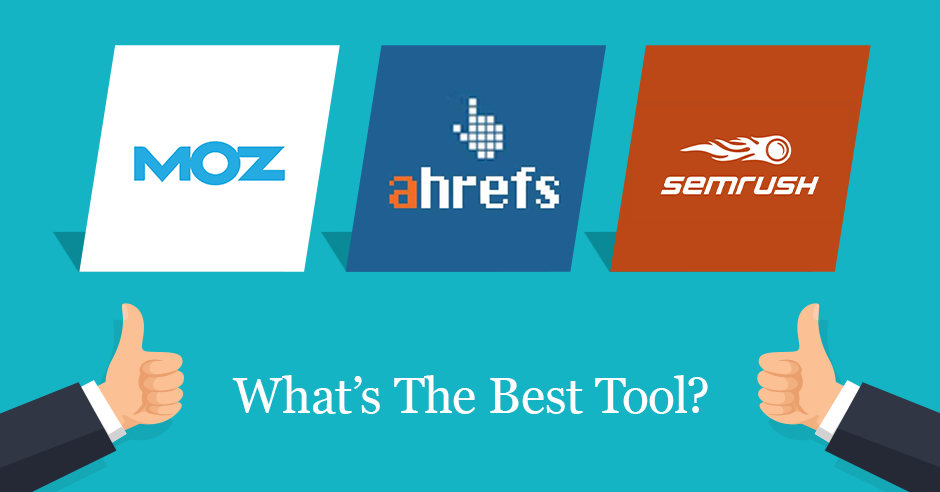Introduction to Moz and its SEO tools
Navigating the world of SEO can feel like a daunting task. With countless tools and platforms claiming to offer the best solutions, choosing the right one is essential for achieving online visibility. Enter Moz—a name that’s become synonymous with effective SEO strategies. Known for its robust suite of features, Moz aims to simplify search engine optimization for businesses and individuals alike.
In this post, we’ll dive deep into what makes Moz stand out in an overcrowded market. From keyword research to backlink tracking, we’ll explore both the pros and cons of using this powerful toolset. If you’re contemplating whether Moz is worth your investment or just curious about its capabilities, stick around as we share insights gained from personal experience and comparisons with other popular SEO tools!
Pros of using Moz for SEO
Moz offers a suite of powerful tools that cater to various SEO needs. One standout feature is its keyword research and analysis capabilities. Users can easily identify high-potential keywords, assess their difficulty, and understand search volume trends.
Site audits are another strong point. Moz allows users to run comprehensive checks on their websites, uncovering technical issues that could hinder performance. The recommendations provided make it easier to optimize your site for better visibility in search results.
Additionally, the backlink analysis tool is invaluable for tracking link-building efforts. It helps you monitor your backlinks while also keeping an eye on competitors’ link profiles. This information can guide effective strategies tailored to improve domain authority and rankings over time.
With detailed insights offered through these features, Moz becomes a solid ally for anyone serious about enhancing their SEO game.
A. Keyword research and analysis
Keyword research is the backbone of any successful SEO strategy. Moz shines in this area with its robust tools designed for finding relevant keywords.
The Keyword Explorer feature is particularly noteworthy. It helps users discover new keyword opportunities and assess their potential impact on rankings. The interface is user-friendly, making it easy to navigate through suggested keywords, search volume data, and difficulty scores.
With the ability to analyze SERP features, you can understand how competitive a keyword really is. This insight allows for smarter targeting strategies tailored to your niche.
Moreover, the “Keywords by Site” function lets you see which terms are driving traffic to competitors’ sites. Such analysis can spark ideas that might have otherwise gone unnoticed.
Moz provides an intuitive experience that empowers both beginners and seasoned professionals in their keyword exploration journey.
B. Site audits and optimizations
Moz offers a comprehensive site audit feature that digs deep into your website’s health. It scans for technical issues like broken links, missing meta tags, and loading speed concerns.
The interface is user-friendly, presenting findings in an easy-to-understand format. You can quickly identify critical errors that may affect your site’s performance on search engines.
Once the audit is complete, Moz provides actionable insights to optimize your site. These recommendations help improve not only SEO rankings but also user experience.
Regular audits keep you ahead of potential problems before they escalate. By addressing these issues proactively, you create a solid foundation for long-term success in digital marketing strategies.
With Moz’s tools at your disposal, optimizing every aspect of your website becomes efficient and effective—essential for any serious online business aiming to thrive.
C. Backlink analysis and tracking
Backlink analysis is one of Moz’s standout features. Understanding your link profile can significantly impact your site’s authority and ranking.
Moz allows users to see who’s linking to their site, the quality of those links, and how they compare against competitors. This transparency empowers SEO professionals to make informed decisions.
Tracking backlinks over time helps identify trends in link growth or loss. You can pinpoint which strategies work best for attracting valuable links.
The tool also offers insights into toxic backlinks that could harm your rankings. By identifying these harmful links, you can take action to disavow or remove them effectively.
With its user-friendly interface, Moz simplifies complex backlink data into digestible metrics. This makes it easier for marketers at all levels to understand their link-building efforts and adjust strategies as needed.
Cons of using Moz for SEO
While Moz offers robust SEO features, it does have its downsides. One major concern is the cost of subscription plans. For small businesses or freelancers, the monthly fees can be a significant investment.
Another drawback is the learning curve associated with using Moz effectively. New users may find the interface overwhelming at first, which can hinder productivity and results during the initial stages.
Additionally, when it comes to competitor analysis, Moz falls short compared to other tools in this space. Many users crave more detailed insights into their competitors’ strategies but may find these features lacking within Moz’s offerings.
These limitations may not suit everyone’s needs and could impact your overall experience with this popular SEO tool.
A. Cost of subscription plans
When considering Moz, the cost of subscription plans can be a significant factor. While it offers powerful tools for SEO, those capabilities come at a price.
The entry-level plan might seem reasonable for small businesses or freelancers. However, larger organizations may find themselves needing to upgrade quickly as their needs grow. Pricing tiers can feel steep when compared to some competitors that offer similar features at lower rates.
Another point worth noting is that Moz does not provide a free tier or trial period. This means you must commit financially before fully understanding how well its features align with your specific goals.
For budget-conscious users, this could pose a challenge as they evaluate different options in the crowded SEO tool market. Balancing cost against potential ROI becomes crucial when deciding if Moz is the right fit for your strategy.
B. Learning curve for beginners
Navigating Moz can feel daunting for newcomers. The interface presents a wealth of information, which might overwhelm those just starting in SEO.
The various tools and features require some time to understand. Beginners often find themselves grappling with terms like domain authority, keyword difficulty, and backlink profiles without much guidance. This steep learning curve can be frustrating.
However, Moz does offer resources like tutorials and community forums that aim to help users adapt more quickly. While these materials are beneficial, they may not always bridge the gap for absolute beginners.
It’s essential to approach Moz patiently. Familiarity grows with consistent use, but it demands commitment upfront. Those who invest the time will likely appreciate the depth of insights available as they become more adept at using its features over time.
C. Limited competitor analysis features
While Moz excels in various areas, its competitor analysis features can feel a bit lacking. Many users find that the platform doesn’t provide as deep insights into rival performance as some other SEO tools do.
For instance, if you’re looking to get detailed metrics on your competition’s keyword strategies or traffic estimates, you might be left wanting. It’s not that Moz ignores competitors altogether; it just doesn’t dig as deeply compared to alternatives like SEMrush or Ahrefs.
This limitation could be problematic for businesses needing comprehensive competitive intelligence. Understanding what others are doing in your niche is crucial for crafting effective strategies and staying ahead of the curve.
So, if thorough competitor analysis is high on your priority list, consider how much weight this feature holds in your decision-making process regarding using Moz.
Personal experience with Moz’s SEO features
Using Moz has been quite an enlightening experience. The interface is user-friendly, making it easy to navigate through its various SEO features.
I particularly enjoyed the keyword research tool. It provided valuable insights into search volume and competition levels, helping me target the right keywords for my content strategy.
The site audit feature caught my attention too. It highlighted areas needing optimization and offered actionable recommendations, which made improving site health much simpler.
Additionally, tracking backlinks was a breeze with Moz’s tools. I could easily monitor new links gained or lost over time, allowing for better relationship management with other websites.
However, there were moments of frustration as well—some advanced features felt overwhelming at times. Using Moz truly enhanced my understanding of SEO dynamics.
Comparison to other popular SEO tools
When comparing Moz to other popular SEO tools like SEMrush and Ahrefs, each platform has its strengths.
Moz shines in user-friendly keyword research with its intuitive interface. Its Keyword Explorer is a favorite for many who appreciate simplicity alongside powerful insights.
On the other hand, Ahrefs offers robust backlink analysis that often outperforms Moz’s capabilities. Users looking for advanced metrics may find Ahrefs more appealing.
SEMrush combines SEO with marketing analytics, making it versatile but sometimes overwhelming for those focused solely on organic search.
While Moz excels in site audits and optimization suggestions, some users might miss detailed competitor analysis features present in other platforms.
Choosing the right tool depends on your specific needs and familiarity with SEO concepts. Each has something unique to offer depending on your strategy.
Conclusion and recommendation for
When considering Moz for your SEO needs, it’s essential to weigh both its strengths and weaknesses. The platform excels with features like effective keyword research tools that help uncover valuable opportunities. Its site audit capabilities are also noteworthy, providing deep insights into website performance and areas for improvement.
However, the cost of subscription plans can be a hurdle for some users. Additionally, beginners might find the learning curve steep at first. While Moz offers solid backlink analysis tools, its competitor analysis features may not stack up against those offered by other platforms.
My personal experience with Moz’s SEO features has been largely positive. It has helped streamline my workflow and optimize various aspects of my websites effectively.
Compared to other popular SEO tools available today, Moz holds its ground but does have distinct advantages and disadvantages depending on user needs.
For anyone serious about enhancing their online presence with reliable data-driven insights, evaluating whether the pros outweigh the cons in relation to your specific goals is crucial. If you’re willing to invest time in learning the software, it could very well be a worthy addition to your digital marketing toolkit.




















